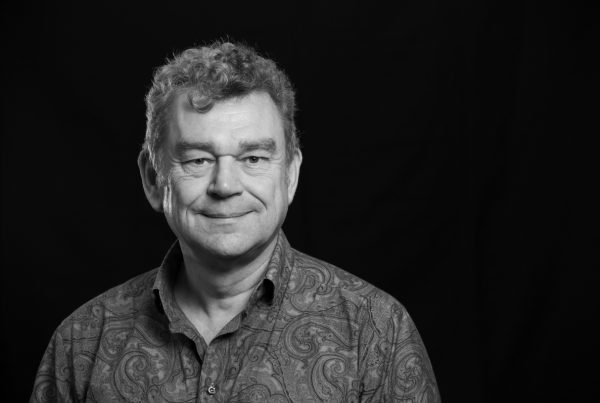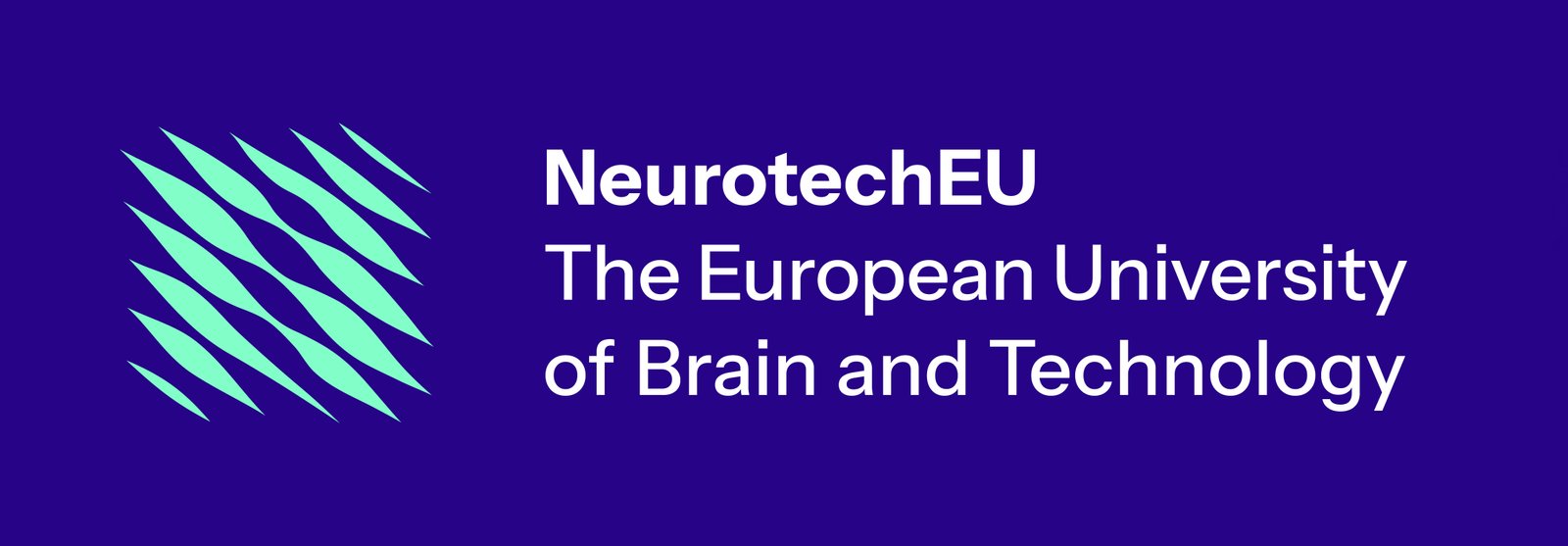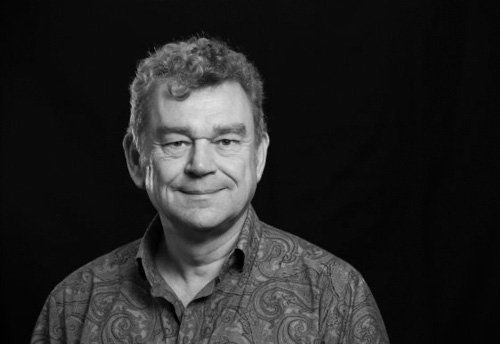From Curiosity to Neurotech - A Journey into the Mind and Beyond with Professor Paul Verschure
In the faces of NeurotechEU series, several people in the NeurotechEU alliance are interviewed to learn about their experiences and insights.
Professor Dr. Paul Verschure, the previous coordinator of NeurotechEU, is a driving force in shaping the future of neuroscience, AI, and robotics. He is a professor of neuroengineering at Radboud University and founded Eodyne Systems S.L., a pioneering company in neurorehabilitation technology. Additionally, he is the visionary behind the Future Memory Foundation, revolutionizing how we preserve and present European history, and he founded the Convergent Science Network Foundation which aims at breaking silos in science and technology. His extensive and diverse career, which unfolded across various continents and disciplines, exemplifies the limitless possibilities of neurotechnology and its profound impact on our world.

Commitment to excellence and accountability is essential for advancing the field of neurotechnology and Europe's competitive position globally.
Paul Verschure
You studied psychology but later expanded your research to neuroscience, robotics, and A.I. What led you to neurotechnology?
My fascination with the mysteries of the mind, philosophically and empirically, led me to explore neural networks and AI in the 1980s. I developed neural models linked to robots, connecting learning mechanisms with actual behavior, a departure from traditional psychology, which by now is known as embodied cognition, computational neuroscience, or neuroAI.
To bridge the gap between computation, mind, and brain, I pursued a Ph.D. in Zurich, delving into embodied AI and neuroscience in San Diego, where I worked with Nobel laureate Gerald Edelman and subsequently AI pioneer Terry Sejnowski. Early in my career, I formulated the "distributed adaptive control" theory, guiding my work for nearly 30 years. I also ventured into applications, developing an effective neurorehabilitation system based on these models of the brain which is widely used. Neurotechnology emerges as the confluence of my various scientific interests, allowing me to merge empirical understanding with technology in neuroscience, AI, robotics, and clinical applications. This journey shaped a coherent narrative of the field, covering dimensions like systems neuroscience, neuromorphic computing, neurorobotics, and more, which also form the foundations of the conceptual space of NeurotechEU.
Your thought process seems to be mathematical. How did you transition from psychology to programming and AI?
As a psychology student, I ventured into computer science to learn programming, also inspired by my father's early recognition of its importance. While I had to improve my math skills, I'm more algorithmic in my approach and have spent years programming because I genuinely enjoyed it. I didn't follow a traditional career path but pursued what I found intriguing, ultimately leading me to where I am today.
During the late 80s and early 90s, obtaining and working with robots was more complex than it is today. Fortunately, I collaborated with Francesco Mondada and Professor Jean-Daniel Nicoud at EPFL in Lausanne, Switzerland. I had access to their early educational robots called Khepera, which was crucial for my experiments in embodied cognition. It taught me the importance of having the right “toys” to advance science. Science starts from ideas but also requires instrumentation and infrastructure. The two form a synergy, which I call Vico’s loop, after the Neapolitan philosopher Giambatista Vico, who famously said that the truth and the fact are reversible or we can understand nature through construction and synthesis.
After spending years in diverse cultural backgrounds, how much have you changed?
Living in different places does change you. While I’ve observed and experienced various cultural tendencies across Europe and the USA, at the core, it is about personalities. Open and creative individuals work well together, regardless of their origins and background. We must learn to work together to tackle Europe’s challenges effectively, focusing on shared values and common ground. Here we have to counteract stress and fear that is often at the basis of the collapse of trust and collaboration.
Managing your numerous commitments can be challenging. Do you take work home?
Dealing with significant and complex projects like NeurotechEU often becomes a 24/7 commitment. Taking on responsibilities for such a project means being available beyond regular work hours, also because others rely on your activities and decisions. In a sense, you always take work home. Once you are on the critical path, don’t get in the way. Commitment to excellence and accountability is essential for advancing the field of neurotechnology and Europe's competitive position globally. There is no bureaucracy of creativity and innovation, only ideas will get us there.
I engage in endurance sports to relax, Ironman races keep me focused and motivated to train consistently and also to be confronted with my own limitations. My athletic performance is always worse than I expect, creating motivation to improve and train on my limiters. I take this value to heart in all things I do. I try to efficiently blend work and training, skipping late nights and extended lunches to maximize my time. Indeed, you can prepare rather well during meetings, given the proper equipment.
Learning about your Future Memory Foundation made me curious about your interest in history.
My grandfather's involvement in the Dutch resistance during World War II, his imprisonment in German concentration camps, and his death in Bergen Belsen deeply impacted me from a young age. Preserving the history of the Holocaust and Nazi crimes is vital for European identity and unity. As witnesses pass, trauma lingers through generations, and threats to freedom are omnipresent; we must keep on educating ourselves about this foundational history to motivate our vigilance and prevent authoritarianism and fascism from re-emerging. The current crises also at the borders of Europe show the importance of treasuring and defending our liberty and democracy; once lost, it will be very hard to regain. Also, NeurotechEU has a role in strengthening Europe and European identity and values, and my historical perspective is one of my motivations to spend a lot of energy and time on this project.
When I visited the Bergen Belsen memorial, I found the presentation of this history needing improvement. I knew science and technology could enhance the experience and impact, so I founded the Future Memory Foundation and engaged in a number of European projects in Cultural Heritage. We collaborate with memorial sites across Europe, from Norway to Croatia, using virtual and augmented reality technologies to create augmented and engaging spaces that tell the story effectively, a method visitors appreciate. We also have shown the effectiveness of this approach using advanced neuroscience research methods with intracranially implanted human participants. These experiments showed that active engagement with information is more effective in forming memories than passive exposure and creating a willingness to act upon this newly acquired knowledge.
What would you be if you weren't a technology and psychology researcher?
As a child, I wanted to be an archaeologist due to my love for digging in the earth and discovery. I've always been academically inclined, craving learning and exploration although the Dutch education system did not always agree with that. I find satisfaction in projects where we advance knowledge and create impactful solutions and I believe these two aspects go together. I'm content as long as I can combine curiosity with valuable and relevant results. Yet, in research, there is little room for content; the next challenge is already underway.
What are your thoughts on the future of NTEU?
The creation of a new pan-European university might seem a sheer impossible task. But we can't forget that Plato also started his academy on a piece of empty land he had inherited driven by ideas and the wish to learn. We must embrace our vision and ambition as a compass to navigate the potential confusion. As a consortium, we have a unique opportunity to create something impactful, disruptive, and future-proof. Yet, to achieve this, we need to give ourselves creative freedom to act and not feel constrained by the status quo. We should focus on the novelty and excitement of the frontier of neurotechnology, challenge ourselves, and be content-driven in transforming higher education. NeurotechEU has excellent potential and we must seize this opportunity and aim high. In this, we also must recognize that the NeurotechEU ambition, or the we-mode of collaboration, will create friction and contradictions with the model of the local universities as we know them, or the i-mode of single institutions. This should not be considered a problem but rather part of the experiment of bridging these two modes.
In a recent interview with Professor Necati Aras, he asked about managing diverse projects and the motivation strategy. How do you maintain motivation?
Motivation stems from the excitement and joy in your work. It's about inspiring others with collective goals that can be achieved through teamwork fueling confidence during setbacks. In NeurotechEU, our path to the future is paved with ideas, aspirations, and creativity, driving progress where a dedicated core team through values, ideas, and powering education, research, and innovation. Inner motivation, fuelled by the desire for meaningful impact, is vital. We need a trust-based environment for idea-sharing. My approach to sustaining motivation is through co-constructing a shared vision of the future, consistently communicated and relatable to everyone. Above all, it is vital to talk the talk and walk the walk, leading from the front and not pushing from the back.
In the exciting phases of the Neurotech E.U. interview series, who would you prefer to read about, and what would you ask?
Guillermo Talavera is the secret weapon of our success. He has brought people together and managed procedures to keep the project running smoothly. Knowing his approach to building trust and fostering collaboration within the consortium would be great. Read the interview with Guillermo Talavera here.
By: Krisztina Csiba from the University of Debrecen

